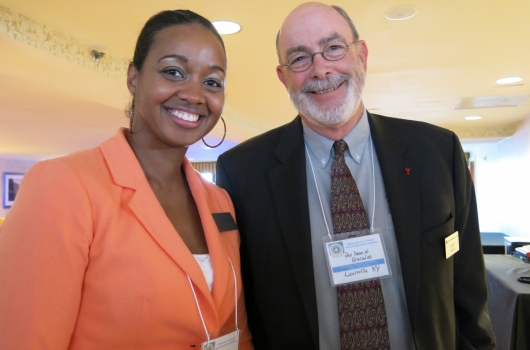A New Approach to an Old Problem

“I’m sorry. I didn’t quite catch that.” I’m saying that more and more frequently in the conversations I’ve been having lately. I am losing my hearing. My hearing has gotten worse and worse over the years, but it seems to have accelerated of late. There are many causes of this, I suppose. No one can pinpoint just one. I have worn hearing aids since my late forties. Now, the audiologist has told me that I have tapped out. The help hearing aids provided will no longer address the continued loss of certain sounds and tones.
I could try newer hearing aids with greater technology, but it probably wouldn’t help me hear the squeaky voice of my six-year-old granddaughter or the beep from the microwave when my popcorn is ready. So, when old solutions no longer work, it’s time to be creative and look for new approaches to the old problem.
This logic applies to our corrections system. We have heard the statistics about mass incarceration in our country. We are beginning to acknowledge that we have a problem—considering that we have the highest rate of incarceration in the world. What is more shocking is the disproportionate effect upon people of color.
Shifting the Tide
This is documented in a number of places. It’s been addressed most recently in an article by Jeffrey Toobin, in the May 11, 2015 issue of The New Yorker titled “The Milwaukee Experiment.” He quotes Paul Butler, a professor at Georgetown University Law Center:
“Prisons are finishing schools for criminals, so they breed more crime. They cost a fortune to maintain. And the racism of the process just starts with drug crimes. Black people don’t use drugs more than anyone else, but, with 13 percent of the population, black people make up close to 40 percent of inmates serving time for drug offenses.”
Toobin explores the innovative work of John Chisholm, Milwaukee County district attorney. For quite some time, Chisholm has been concerned about the racial imbalance in American prisons, particularly in his own district. In Wisconsin, the African-American population comprises 6 percent of the state’s population but 37 percent of those in Wisconsin state prisons. Chisholm has taken it upon himself to try some alternatives to obtain different outcomes—realizing that these disproportionate numbers represent a flaw in the system. The articledescribes how he has adjusted the manner in which cases are examined for prosecution in order to remove those occasions where racial bias may have affected prosecutorial decisions about which cases to prosecute and which to move into diversion programs. New approaches to an old problem.
It seems that creative, innovative methods to an obviously dysfunctional criminal justice system are now necessary if we are to change this scandalous trend that has unfairly impacted communities and families of color in the United States. We simply can’t continue to pour more money into a system that hasn’t worked well and expect different outcomes.
Just as more amplification won’t solve my hearing loss. Building more prisons, spending more money on programming that hasn’t been effective, slapping together more Band-Aid solutions won’t correct the problem of a broken correctional system. Chisholm should be commended for taking bold steps to try to shift the tide, as Toobin notes, of a criminal justice system that has failed African Americans.
More restorative justice programs need to be implemented and employed as alternatives to our retributive justice system. Drug laws and mandatory minimum sentencing laws need to be revisited. Mentoring programs that begin inside correctional institutions need to be encouraged.
A Radical Solution
I am now a candidate for a cochlear implant. It’s a radical solution for those with significant hearing loss. It has the potential of doubling my capacity to hear. It has some risk, but the success in cases like mine significantly outweigh any possibility of failure. Without any intervention, my hearing will only get worse. By re-routing and re-programming the way I hear, the possibility of improving my hearing is a likely outcome.
Doesn’t that same principle apply to our criminal justice system? Isn’t it time we look at the system and try “re-programming” so that the outcomes are more acceptable and just?
Let me hear (no pun intended) what you are doing in your community to address these concerns about our criminal justice system—about the impact of mass incarceration in your state or about our over-crowded prison and jail system. How is your church getting involved in seeking solutions for those who are behind the bars and those who will soon to be returning to your community?
I look forward to learning about and sharing your ideas and solutions. Together, we can explore and exchange these ideas and new approaches. I am convinced that the outcome will be one where the hope of new solutions will be a reality.
Rev. Dean Bucalos serves as part-time Mission Specialist for NBA Prison and Jail Ministries. Connect with Dean by email.